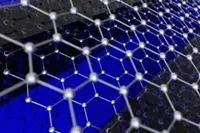 Spanish company Graphenea has won its first patent for a method it has developed to transfer large areas of graphene grown by chemical vapour deposition (CVD) from a metal foil to an insulating substrate.
Spanish company Graphenea has won its first patent for a method it has developed to transfer large areas of graphene grown by chemical vapour deposition (CVD) from a metal foil to an insulating substrate.
The company claims that, as CVD is the most promising way of growing large, high quality graphene sheets, this could be a key patent in the graphene industry.
In CVD, a source of carbon is introduced into a chamber holding a metal catalyst substrate. Under controlled conditions, the carbon forms smooth single atomic layers on all sides of the metal foil.
After growth on a metal, the graphene needs to be transferred to a useful substrate, such as an insulator. Transfer of such a large, thin film is a challenge, which often results in an imperfect final product. Graphena says its method addresses this issue.
The method starts with sheets of graphene grown on either side of a metal foil – typically copper. The first step in the transfer process is to remove one of these layers and this step is performed with a thermal release tape. Using pneumatic cylinders and accuracy valves, thermal release adhesive tape is rolled onto the graphene surface and the stack is then heated to release the tape. Subsequent steps involve depositing a sacrificial protective layer on top of the graphene, etching away the copper, transferring the graphene mechanically onto the desired substrate and dissolving the protective layer.
According to Graphenea, this method results in graphene films of excellent quality, generally surpassing that of films obtained by other transfer and etching methods.
Author
Graham Pitcher
Source: www.newelectronics.co.uk
